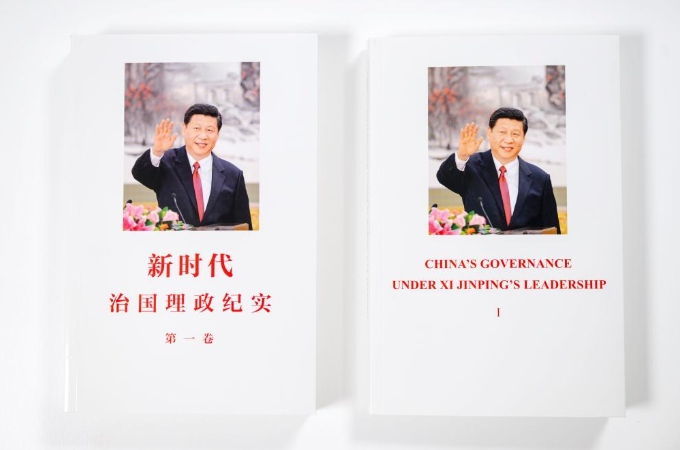Interview: China to step up proactive fiscal policy: finance minister
Source: Xinhua | 2023-01-04 | Editor:Lexi
China will facilitate the expansion and improve the effectiveness of the proactive fiscal policy to cope with multiple challenges ahead, a senior official said.
The unsolid fundamentals for economic recovery, "triple pressure" of shrinking demand, supply shocks and weakening expectations, and a turbulent external environment demand efforts to step up maneuvers for macro fiscal policies and optimize the policy toolbox, Minister of Finance Liu Kun told Xinhua in an interview.
Liu specified that expanding fiscal policies includes efforts to coordinate the fiscal revenue, deficit, and interest subsidies and appropriately increase fiscal spending.
Data shows that China's educational expenditure totaled 33 trillion yuan (about 4.75 trillion U.S. dollars) from 2012 to 2021. During the same period, general-public budget health and housing expenditure stood at 13.6 trillion yuan and 6 trillion yuan, respectively.
"The fiscal balance issue is still outstanding in 2023, but we will not roll back on spending on people's wellbeing," Liu said.
He also noted the need to budget the scale of special-purpose bonds issued by local governments.
Efforts will also be made to channel fiscal funds to primary-level governments and tilt support toward challenging and underdeveloped regions, Liu said.
In terms of improving the effectiveness of fiscal policies, Liu stressed the importance of perfecting the tax and fee policies and boosting their accuracy to help enterprises overcome difficulties.
China has carried out a wide array of tax and fee cuts over the years, which has effectively bolstered market expectations, especially in 2022 when the country implemented large-scale value-added tax credit refunds, Liu said.
Tax and fee cuts, as well as refunds and deferrals combined, topped 4 trillion yuan in 2022, which helped enterprises to keep their business afloat, Liu added.
He also highlighted the efforts to optimize fiscal spending structure and strengthen the synergy between monetary, industrial, technological, and social policies to prompt an overall economic upturn.
In response to a question regarding risks, Liu said China's government debt-to-GDP ratio is far below the internationally recognized alert level of 60 percent and that of major market-oriented and emerging economies. The risks are generally manageable, Liu noted.
You May Like
-
China adjusts tariff plan to include more items
China has decided to adjust its tariff plan for 2023 and expand the number of tariff items in line with the need for industrial development and technical adva...
InKunming 2022-12-30 -
Major Chinese power transmission project now fully operation...
China has put into full operation a major domestic power transmission project that sends electricity from the resource-rich west of the country to energy-consum...
InKunming 2022-12-30 -
China plans to expand national park system
China has selected 49 candidate areas for building national parks, in order to better protect wildlife species and their habitats. This is according to a spat...
InKunming 2022-12-30 -
Trade between China, other RCEP members up 7.9 pct in first ...
Trade between China and the other members of the Regional Comprehensive Economic Partnership (RCEP) has sustained rapid growth since the trade agreement took ef...
InKunming 2022-12-30 -
Economic Watch: Chinese provinces boost China-Africa economi...
Although the next China-Africa Economic and Trade Expo is still six months away, an economic and trade delegation from central China's Hunan Province has finish...
InKunming 2022-12-30 -
China to downgrade COVID-19 management to Class B
China will downgrade management of COVID-19 to Class B and cancel quarantine requirements on inbound travelers from Jan. 8, 2023, China's top health authority a...
InKunming 2022-12-29 -
China works to vitalize market entities
As China optimized its epidemic response measures and enhanced efforts to help enterprises tide over difficulties, the country has witnessed higher efficiency i...
InKunming 2022-12-29 -
Stay stable -- China combines tools to navigate 2022 economi...
China, the world's second-largest economy, has experienced an unusual journey in 2022, a year featuring "factors exceeding expectations" that tested the decis...
InKunming 2022-12-29 -
Traditional Chinese culture wins hearts of young people worl...
Thanks to the country's protective efforts, traditional Chinese culture today is shining with a new vitality, which is not only increasingly appealing to younge...
InKunming 2022-12-29 -
Railway linking Chengdu and Kunming fully operational in SW ...
A railway linking Chengdu and Kunming, two major cities in southwest China, is now fully operational with the opening of its last section on Monday.
InKunming 2022-12-29







